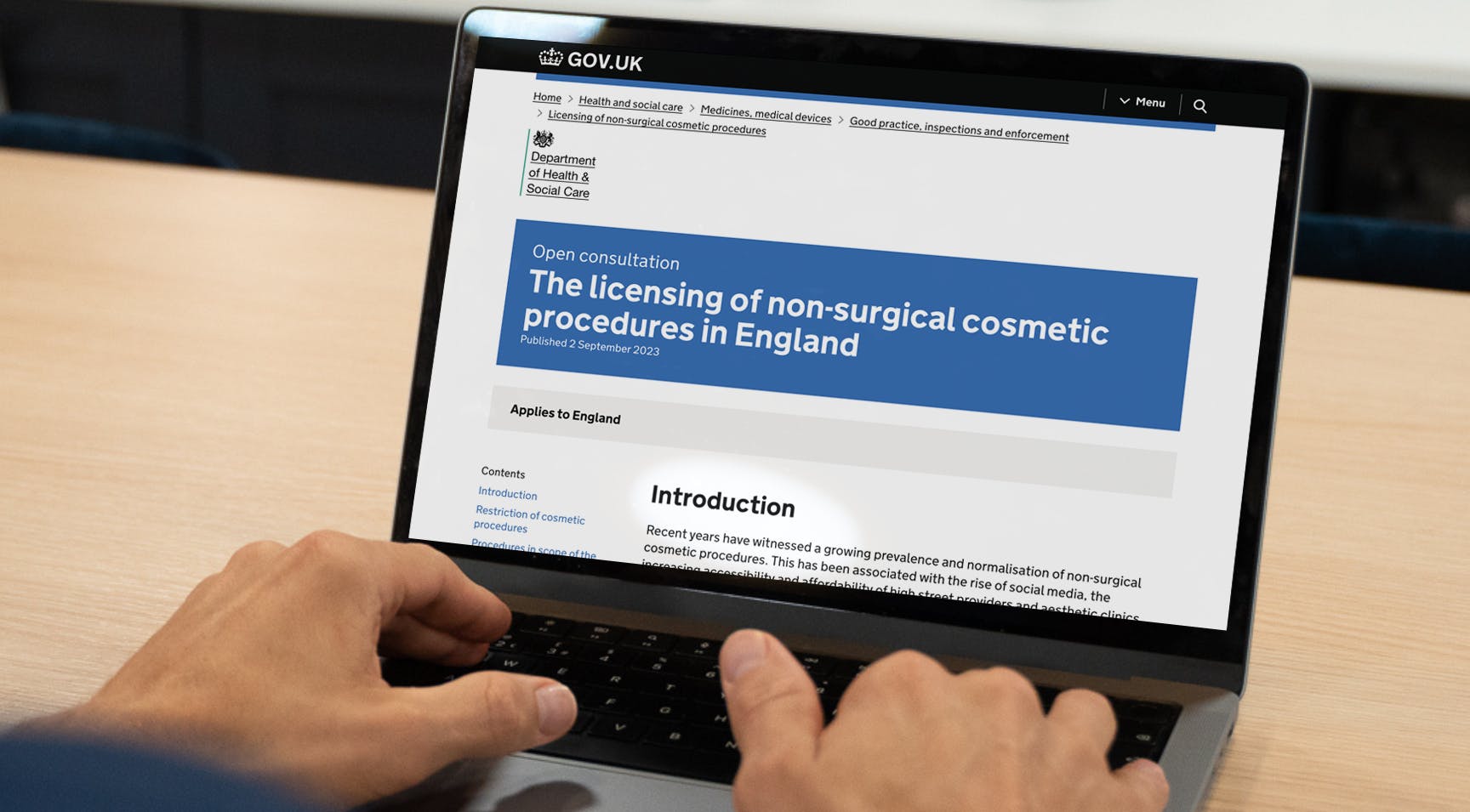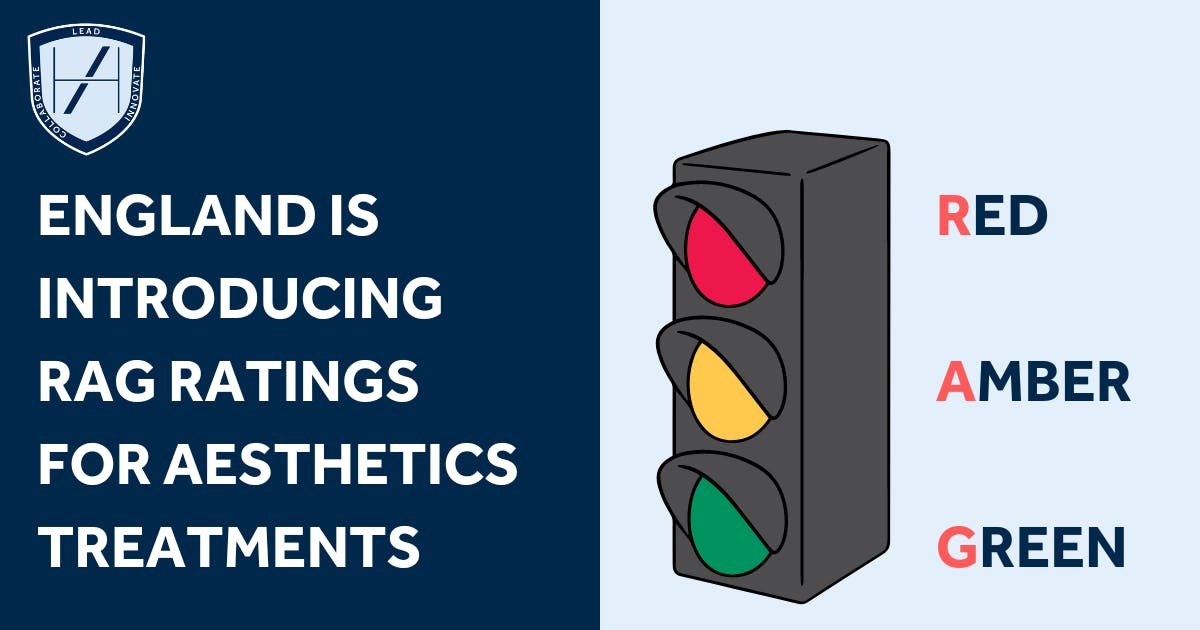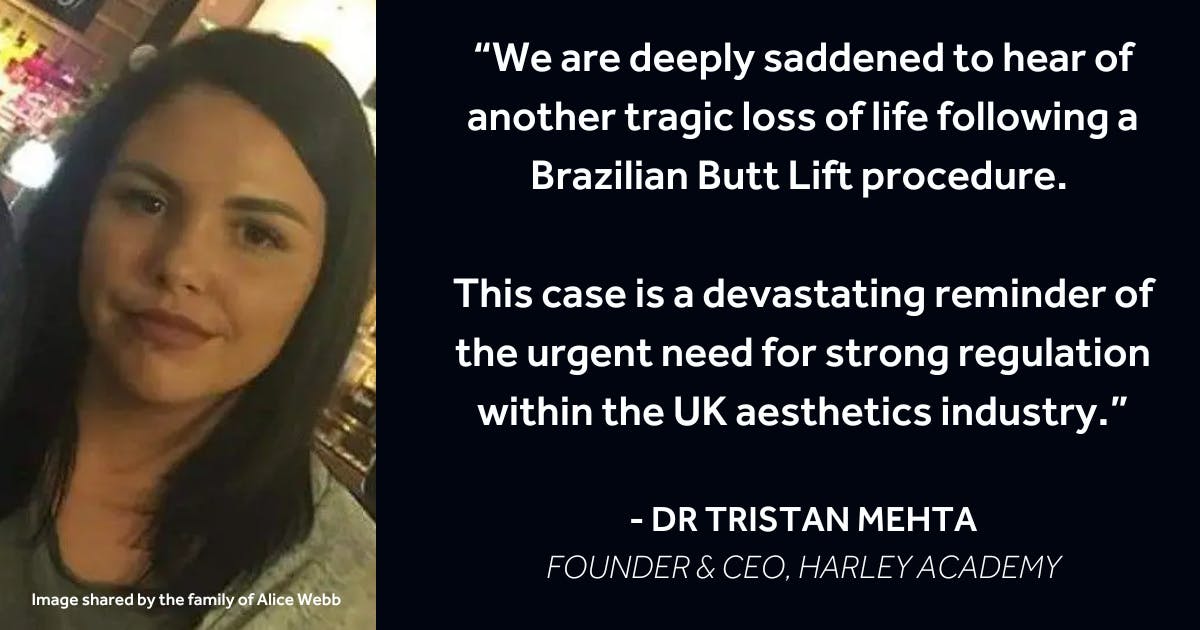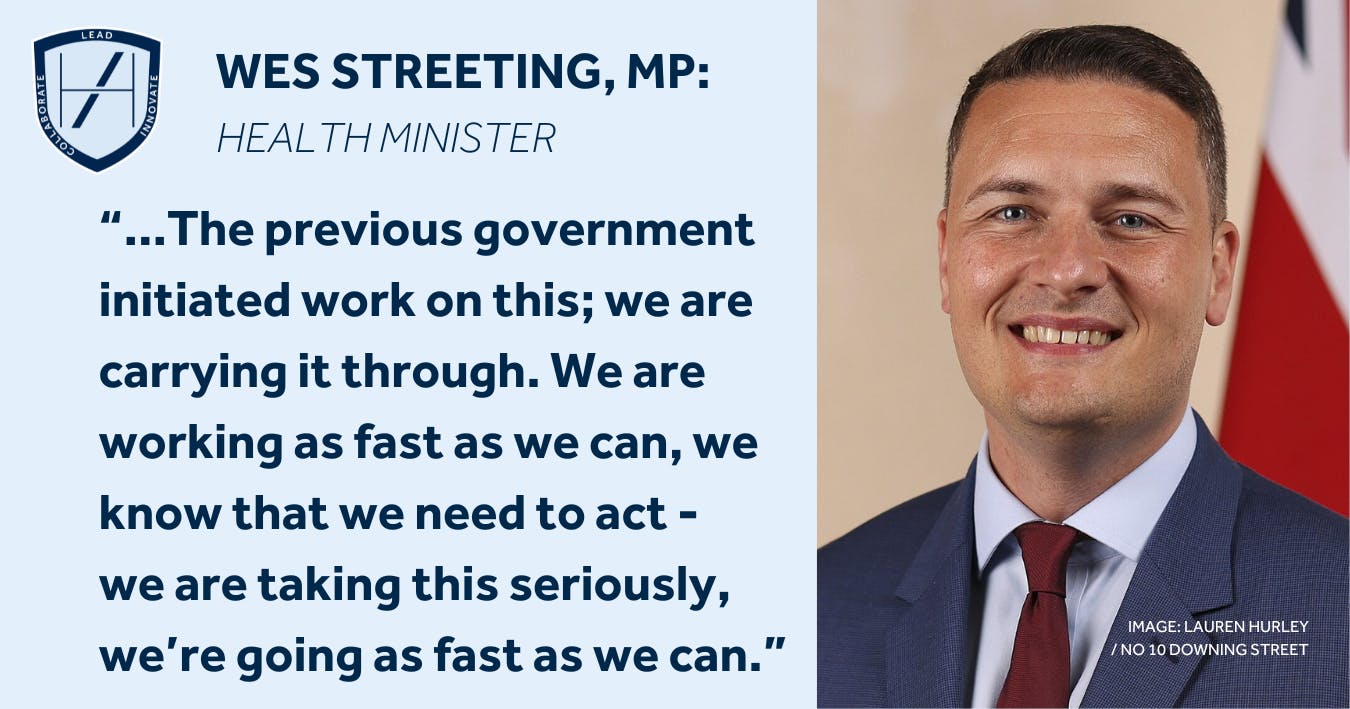What Happened to Aesthetics Regulation and Licensing in 2024?

As 2024 draws to a close, we’re all wondering what happened to aesthetics regulation. Where is the licensing scheme for aesthetic practitioners?
In this round-up of what the non-surgical cosmetic industry achieved this year, we explore:
- What steps towards regulation were achieved in 2024
- Why the change in government has caused delays
- The Health Minister’s latest statement on a timeline for aesthetics licensing
- Why a regulatory delay past early Spring 2025 will be intolerable.

What happened to aesthetics regulation in 2024
This is disappointingly easy to answer: there was no official progress towards aesthetics regulation in 2024 in England.
We can assure you, however, that campaigners such as the Joint Council for Cosmetic Practitioners (JCCP) have been working tirelessly behind the scenes. We all continue to push for urgent change.
There has, however, been a related update for Wales where a new licensing scheme for premises conducting non-surgical cosmetic procedures such as electrolysis or tattoos, was implemented. This was announced on 29th November 2024, however, the press release does not specifically refer to injectable treatments.
Last official update on the aesthetics licensing scheme was in 2023
The first government missive concerning aesthetics regulation in England came in September 2023. This was said to be the first of several proposals surrounding non-surgical cosmetic procedures.
It set out a number of recommendations, including:
- RAG-rating procedures based on risk to public safety
- Defining which aesthetic practitioners can offer each treatment based on these red/amber/green categories
- Two mandatory licences to be required of all practitioners - one for themselves and one for their premises
- Potentially allowing only appropriately trained and qualified medics to carry out certain procedures, whilst licensed non-medics who undergo defined training may be able to administer certain treatments under the supervision of a suitable medical professional. This last point was particularly contentious.
These proposals were published on the Department of Health & Social Care (DHSC) website on 2nd September 2023. This triggered a consultation period during which anyone, from industry professionals to patients and the wider public, could submit their thoughts on these recommendations. We published our consultation response to the government on our website.
The consultation period ended on 28th September 2023. Sharing of the findings from this consultation was expected to be released in late Spring of 2024. This did not happen.
As of December 2024, the initial proposals released on 2nd September 2023 remain the last official government communication regarding aesthetics regulation.

What is the delay in introducing an aesthetics licensing scheme?
UK aesthetics regulation has been delayed for many years, despite many reports being provided to help get the government to where they are now. We have previously outlined the timeline towards regulation of the aesthetics industry, starting in 2013.
It’s worth noting that, when we talk about the current regulatory plans and licensing scheme, this is for England, only. Scotland, Wales and Northern Ireland all set their own regulations. However, it has long been expected that they will follow in England’s footsteps once our schemes are established.
As we have already seen, though, Wales is making headway on its own so this may no longer be the case.
The plans for England were set to start rolling out with a schedule of proposals, each of which would trigger a public consultation, and then a government response. These would then form the basis of the aesthetics regulations and clinician licensing scheme.
As previously outlined, only the first proposal and consultation have happened thus far. So what’s happened?
General election and changes in government have caused delays
When then Prime Minister, Rishi Sunak, called a General Election in May 2024, the most recent timelines experienced their first setback.
We were expecting the response to the first consultation to be announced any day when the election news came. This put the kibosh on any such activity as government ministers downed tools, delaying the process.
The need for aesthetic regulations has always had cross-party support. As such, when the new Labour government took over from the Conservatives in July 2024, it was hoped that the announcement would proceed. As you’re no doubt aware, this did not happen. In fact, it still hasn’t happened.
This has resulted in what’s currently standing at a 7-month delay in proceedings, as of December 2024. However, we don’t actually know if Labour intends to stick to the previous DHSC plans and will continue with the proposals/consultations/responses approach.

What the Health Minister, Wes Streeting, says about the aesthetics regulation timeline for England
Labour’s Health Minister is Wes Streeting, MP. He has come under fire for the lack of regulation since the recent tragedy which saw Gloucester resident, Alice Webb die from a botched non-surgical Brazilian Butt Lift (BBL) procedure.
This led to a campaign from ITV and, patient safety advocates, Save Face to implement ‘Alice’s Law’ which calls for a ban on non-surgical BBL and breast augmentation procedures.
Although hers was the first death of its kind in the UK, 28 Britons have died from cosmetic surgery abroad in the last 5 years, according to an ITV report.
This crisis was highlighted by presenter and producer, Cree-Summer Haughton in the ITV documentary, Britain’s Backstreet Surgery Scandal. Released on 15th November 2024, the programme was already in production when the news of Alice Webb’s death broke.
Although Wes Streeting refused an interview for the documentary, he agreed to speak to ITV News. This is what he said:
“There are lots of people across our country who are extremely vulnerable to cowboys operating, especially where people are going abroad for cosmetic surgery. That’s why we are looking right now at immediate action we can take, both in terms of regulation at home but also working with other countries. Because, I think this is not just a national challenge, this is an international challenge.”
Not to be deterred, Haughton, turned up to this filming and challenged Streeting on camera, saying:
“The UK has been described as the ‘Wild West’ when it comes to these procedures and industry experts are calling for a robust licensing scheme. Can you confirm to me that you are looking into this and are you able to confirm a timeframe?”
Wes Streeting responded, “I think it’s absolutely disgusting that there are ‘Wild West’ operators practising, actually dangerously, in cosmetic surgery, and putting people’s lives at risk. And we’ve seen that in the tragic case of Alice [Webb]. That is why, to be fair to them, the previous government initiated work on this; we are carrying it through. We are working as fast as we can, we know that we need to act - we are taking this seriously, we’re going as fast as we can.”
“So no exact timeframe?”, she followed up.
“Not at this time,” Streeting confirmed.

Will aesthetics regulation happen in 2025?
The simple answer is no, or at least it’s highly unlikely. However, we do expect to see significant progress towards the introduction of the planned aesthetics licensing scheme and broader regulation.
The reason the DHSC initially planned the rollout of proposals, consultations and responses over a two-year period, was - we assume - to give them time to start working on the relevant logistical requirements for each element. This would have allowed them to finalise everything ready for the initial 2026 implementation date that was previously stated.
It’s all well and good for us to all call for regulations to be implemented now - and we do! - but the reality involves a lot of legwork from multiple stakeholders. For example, in order to implement an aesthetics licensing scheme whereby clinicians and their premises require a licence, there are various considerations. These include but are definitely not limited to:
- Taking a decision on who can administer green/amber/red rated procedures and setting a criteria framework for each level
- Reviewing aesthetics training requirements in relation to the practitioner licence
- Determining the aesthetics training and qualification(s) aesthetic practitioners must have successfully completed to be awarded a licence to practice, based on each of the RAG rating categories
- Training local council Environmental Health officers on how to conduct premises inspections and spot checks based on criteria which also needs to be set
- Implementing the systems which will accept and monitor applications plus award the licences; recruiting and training staff on these systems.
Considering how much work is still to be done, we are certainly now off-track for a 2026 implementation of a full regulatory framework. That doesn’t mean we won’t see certain aspects introduced before then, though.
Pressure is mounting for movement by Spring 2025
What we do know is that pressure is mounting on the government from all sides - campaigners, patients and those within the beauty and aesthetic medicine industries are rapidly losing patience.
The agitation in the sector is palpable and if there is still no movement from Wes Streeting’s department in early Spring, this will certainly lead to more political activation.
In the meantime, our advice to healthcare professionals considering a career in aesthetic medicine is to not be disheartened or put off.
Our specialty is full of amazing, supportive individuals and, contrary to popular belief, the industry is not oversaturated. In fact, the spotlight on the need for regulation has hopefully raised awareness of the need for patients to ensure they see ethical aesthetic practitioners who are properly qualified medical professionals, for their botox and filler treatments.
We are keeping very close to these discussions and will continue to update you as soon as more information becomes available.
If you’re considering training in cosmetic injectables and would like to discuss how regulation may affect your aesthetics career, please do book a call with our team. They’ll be happy to talk to you about this and answer any questions.
All information correct at time of publication
Download our full prospectus
Browse all our injectables, dermal fillers and cosmetic dermatology courses in one document
By submitting this form, you agree to receive marketing about our products, events, promotions and exclusive content. Consent is not a condition of purchase, and no purchase is necessary. Message frequency varies. View our Privacy Policy and Terms & Conditions
Attend our FREE open evening
If you're not sure which course is right for you, let us help
Join us online or in-person at our free open evening to learn more
Our Partners














STAY INFORMED
Sign up to receive industry news, careers advice, special offers and information on Harley Academy courses and services

